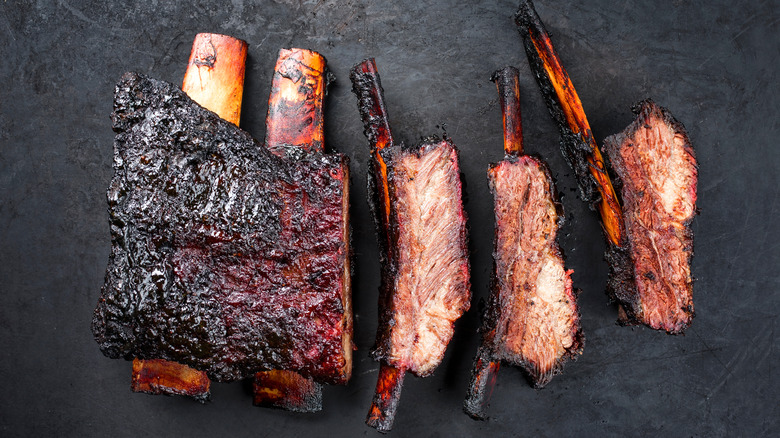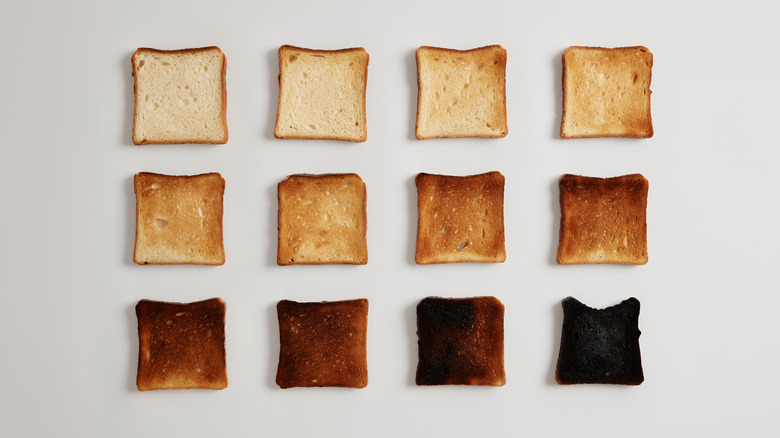Is It Safe To Eat Burnt Food?
It's pretty likely that with all the grilling so many of us love to do during the summer months, that at some point the cook will step away from the grill for just a little too long. When this happens, you're faced with a dilemma; do you toss out that charred steak or hamburger and start all over, or just go ahead and dig in anyways?
The question of whether burnt food is bad for us — and specifically, whether it can cause cancer — has been discussed in scientific circles for years. Scientists know that when certain foods are cooked at very high temperatures (like over an open grill flame), reactions occur that produce natural chemicals known as 'probable carcinogens' — acrylamide, polycyclic aromatic hydrocarbons (PAHs), and heterocyclic amines (HCAs). Acrylamide is formed mostly in starchy foods like potatoes and baked goods (think french fries, potato chips, and burnt toast), while PAH and HCA are formed mainly in meats (via Dana-Farber Cancer Institute).
Bread should be toasted until light, not dark brown
In large amounts, these compounds have been shown to produce cancer in lab animals, including cancers of the breast, colon, liver, skin, lung, prostate and other organs; but the link to cancer in humans is much less clear (via SF Gate). The levels of acrylamide, PAH, and HCA that people are normally exposed to through the occasional burnt steak or panini are hundreds of times lower than what research animals are exposed to in labs. Dr. Paul Brent, the chief scientist of Food Standards Australia and New Zealand (FSANZ), notes, "When you're looking at levels of acrylamide and you relate that to a cancer, you might find an association but then a lot more work has to be done to prove a causal link" (via ABC Health and Wellbeing). In short, there is some cause for concern, but not enough to really justify tossing out those slightly charred kebabs.
That being said, there is no established 'safe level' of acrylamide, PAH, and HCA, and the World Health Organization (WHO), along with the Food and Agriculture Organization (FAO) is calling for a reduction of acrylamide levels in food. In addition, the FDA recommends toasting bread (and cooking potatoes) until lightly browned, not dark brown. Dr. Brent adds, "The jury is still out but most people are taking a fairly cautious approach."


